MENTORING FAQ
Are you interested in mentoring a youth impacted by foster care? Check out our Mentor FAQ below for answers to some common questions.
Frequently Asked Questions
- What is the process for becoming a mentor?
- The first step to becoming a mentor is attending one of our info sessions (live or pre-recorded). If you decide to apply after viewing the session, we will review your application and schedule an interview with you. After interviewing, you’ll attend one of our regularly-scheduled training sessions. We know that this is a long process, but it helps ensure that our program is a good fit for both you and our young people. Check out our Become a Mentor webpage to learn more!
- What if I don’t live in the Greater Boston area?
- We don’t have a residency requirement, but we do require that you are able to travel to and around the Greater Boston area by car, public transit, or taxi to meet your young person where they are.
- How does SLM’s matching process work?
- Our matching process is youth-focused, meaning we make sure young people have a say in what they’re looking for in a mentor and what’s important for them to get from the relationship. We honor these preferences when finding a mentor that’s a “good fit” rather than just matching based on availability or numbers.
- How old will my mentee be?
- Most of the young people we support are teenagers, although some of our programs serve youth as young as 7 years old. Additionally, a young person may enroll or continue to engage after they turn 18. In these programs, our services do not have a specific age cut-off.
- How long until I get matched?
- It depends. Since we take a youth-focused approach, matches are made on a “best fit” basis according to what youth on our waitlist are looking for. Matches can happen quickly or can take a couple months to be finalized.
- What is the expected time commitment for mentors?
- Our mentors commit to volunteering with their mentee for a minimum of 1 year. Mentors are asked to spend 8 hours each month with their mentee, which includes in-person meetings, virtual connection (calls, texts, video calls, etc.), and travel time to and from visits.
- What if I don’t know how to support someone with a specific topic (e.g., parenting/pregnancy, navigating mental health resources, finding housing, etc.)?
- You don’t need to be an expert or professional in any topics/areas to make a great mentor! As a mentor, your primary role is to provide consistency and emotional support, as well as help mentees figure out ways to access the information they might need, rather than providing all the information yourself. What’s most important is that mentors make mentees feel like they matter, because they do! Our clinically-informed Program Coordinators are always here to help.
- What if I don’t have experience supporting someone with a different background than me (e.g., race/ethnicity, religion, culture, sexuality, language, etc.)?
- You don’t need to have experience supporting someone from a different background than your own. We ask that you keep an open mind and willingness to learn. As a mentor, you will be working with the support of a Program Coordinator, who will provide guidance and support throughout your time as a mentor.
- Do I need to have experience working with youth in foster care to become a mentor?
- No, you do not need to have prior experience with youth in foster care to become a mentor. Our staff will work with you to understand SLM’s approach to working with young people impacted by foster care, and you will have a Program Coordinator working with you throughout your time as a mentor. All we ask is that you approach mentoring with an open mind and willingness to learn about the specific challenges and nuances of being a trusted adult friend to youth in foster care.
- Do I need to have experience working with LGBTQ+ youth?
- No, you do not need to have prior experience with LGBTQ+ youth to become a mentor, but we do encourage those with such experience to apply. We ask those who are not experienced supporting LGBTQ+ youth to approach these relationships with an open mind and an open heart.We understand that some people might feel out of touch with language around sexuality and gender identity. Our Program staff will work with you to understand the specific needs of LGBTQ+ youth to ensure that both you and the mentee feel supported. For a quick resource, check out this blog post on why pronouns matter!
- Does Silver Lining Mentoring require a background check?
- Yes, SLM conducts CORI/SORI background checks for all prospective mentors, and we reserve the right to decline a mentor if the background check identifies areas of concern. However, SLM treats each case individually, and past legal infractions do not immediately disqualify you from being a mentor. Please contact Alex Parkes at alex@silverliningmentoring.org if you have questions about this process.
- What are SLM’s COVID-19 policies for mentors? Do I need to be vaccinated?
- Our COVID-19 policy is always evolving. View our current COVID-19 policy here.
Still have questions? Attend an info session or contact Alex Parkes at alex@silverliningmentoring.org to learn more!

